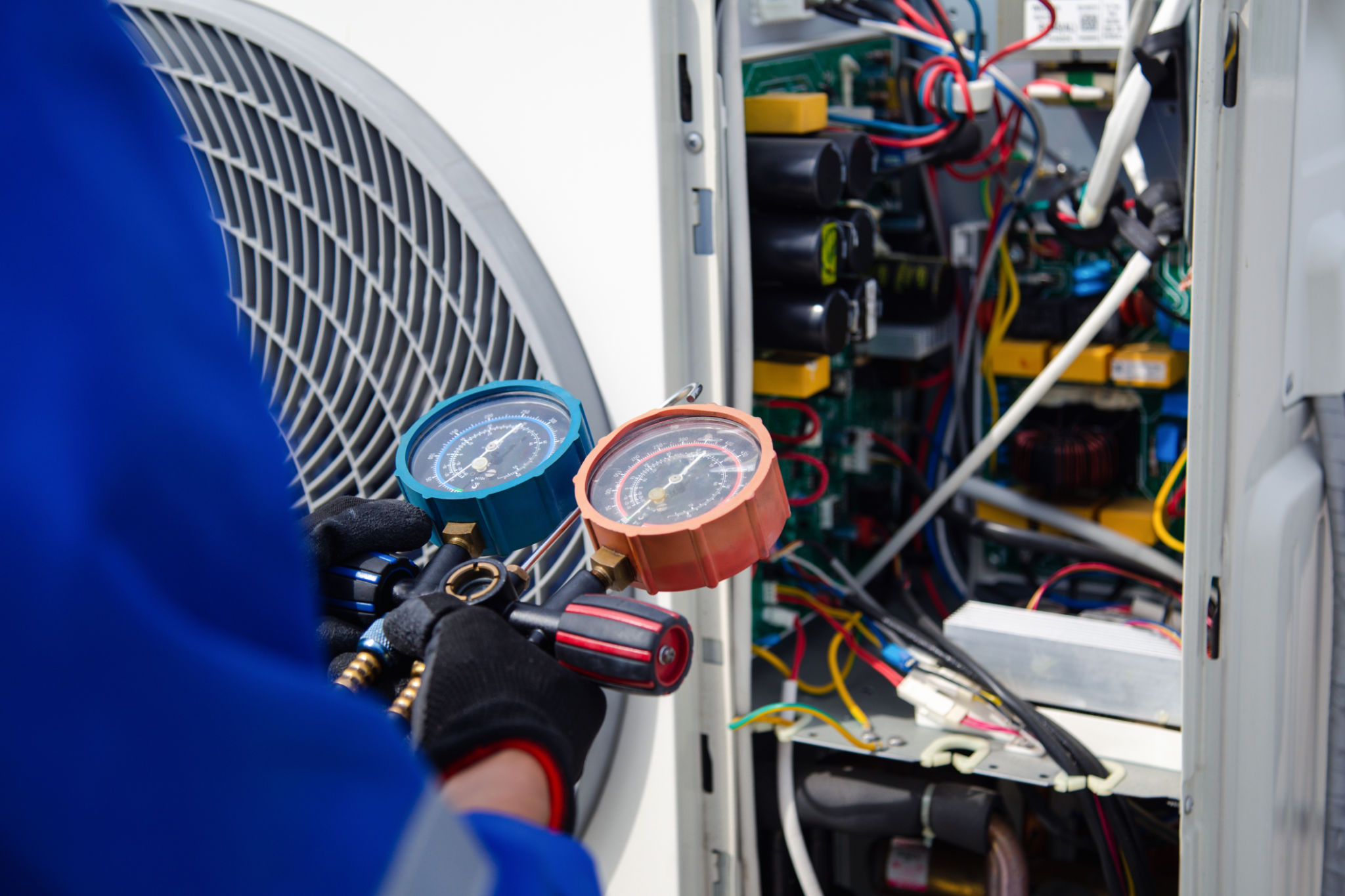The Impact of Denver's Climate on HVAC System Efficiency
The Unique Challenges of Denver's Climate
Denver, known for its stunning mountainous landscapes and vibrant city life, also presents unique climate challenges that can impact the efficiency of HVAC systems. With its high altitude, dry air, and dramatic temperature swings, Denver requires HVAC systems that are adaptable and efficient. Understanding how these specific climate factors affect HVAC performance can help homeowners and businesses optimize their systems for better efficiency and longevity.
One primary concern in Denver is the city's significant altitude. At approximately 5,280 feet above sea level, the thinner air affects the performance of HVAC systems. The reduced oxygen levels mean that HVAC units, particularly those relying on combustion, need to adjust for less oxygen availability. This can lead to decreased efficiency if systems are not properly calibrated.

Temperature Fluctuations and HVAC Performance
Denver experiences substantial temperature fluctuations between day and night, as well as across different seasons. In the summer, temperatures can soar into the 90s during the day but drop significantly at night. Conversely, winters can be harsh, with frigid temperatures that require consistent heating. These fluctuations demand HVAC systems that can quickly and efficiently adjust to maintain a comfortable indoor environment.
For optimal performance, it is crucial that HVAC systems in Denver are equipped with advanced thermostatic controls. Systems need to respond efficiently to the frequent changes in temperature to avoid unnecessary energy consumption and wear on the equipment.
The Impact of Dry Air on HVAC Systems
Another critical factor in Denver's climate is the dry air. The low humidity levels can have various effects on HVAC system efficiency. For instance, dry air can lead to increased static electricity and potential damage to electronic components within HVAC systems. Moreover, dry air can affect human comfort levels, necessitating the use of humidifiers alongside heating systems to maintain adequate indoor humidity.
Integrating humidification systems can help mitigate these issues, ensuring that the HVAC system operates efficiently while maintaining a comfortable indoor environment. Properly balanced humidity levels can also enhance the longevity of HVAC equipment by preventing damage caused by excessively dry conditions.

Strategies for Enhancing HVAC Efficiency in Denver
To ensure HVAC systems operate at peak efficiency in Denver's unique climate, homeowners and businesses can implement several strategies. Regular maintenance checks are essential, as they help identify and address issues before they escalate. This includes checking for leaks, ensuring proper calibration for altitude, and cleaning or replacing filters regularly.
- Invest in programmable thermostats to manage temperature fluctuations effectively.
- Consider energy-efficient models designed for high-altitude performance.
- Incorporate humidifiers to maintain balanced humidity levels indoors.
By taking these steps, residents and businesses in Denver can improve the efficiency and lifespan of their HVAC systems while maintaining a comfortable indoor environment.

Looking Ahead: The Future of HVAC in Denver
As technology advances, the future of HVAC systems in Denver looks promising. Innovations such as smart home technology and energy-efficient models tailored for high-altitude climates are becoming increasingly accessible. These advancements offer the potential for even greater efficiency and comfort for Denver residents.
Moreover, as awareness grows about the importance of sustainable practices, many people are opting for greener HVAC solutions that reduce environmental impact while still providing effective climate control. This shift not only benefits homeowners and businesses but also contributes positively to the broader community by reducing energy consumption and emissions.
In conclusion, understanding and addressing the impacts of Denver's climate on HVAC system efficiency is crucial for maximizing performance and comfort. By staying informed about local climate challenges and embracing new technologies, Denver residents can ensure their HVAC systems are both efficient and sustainable.
